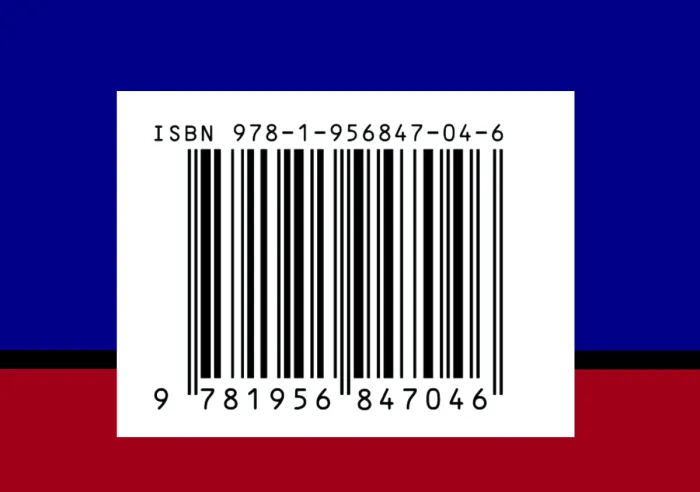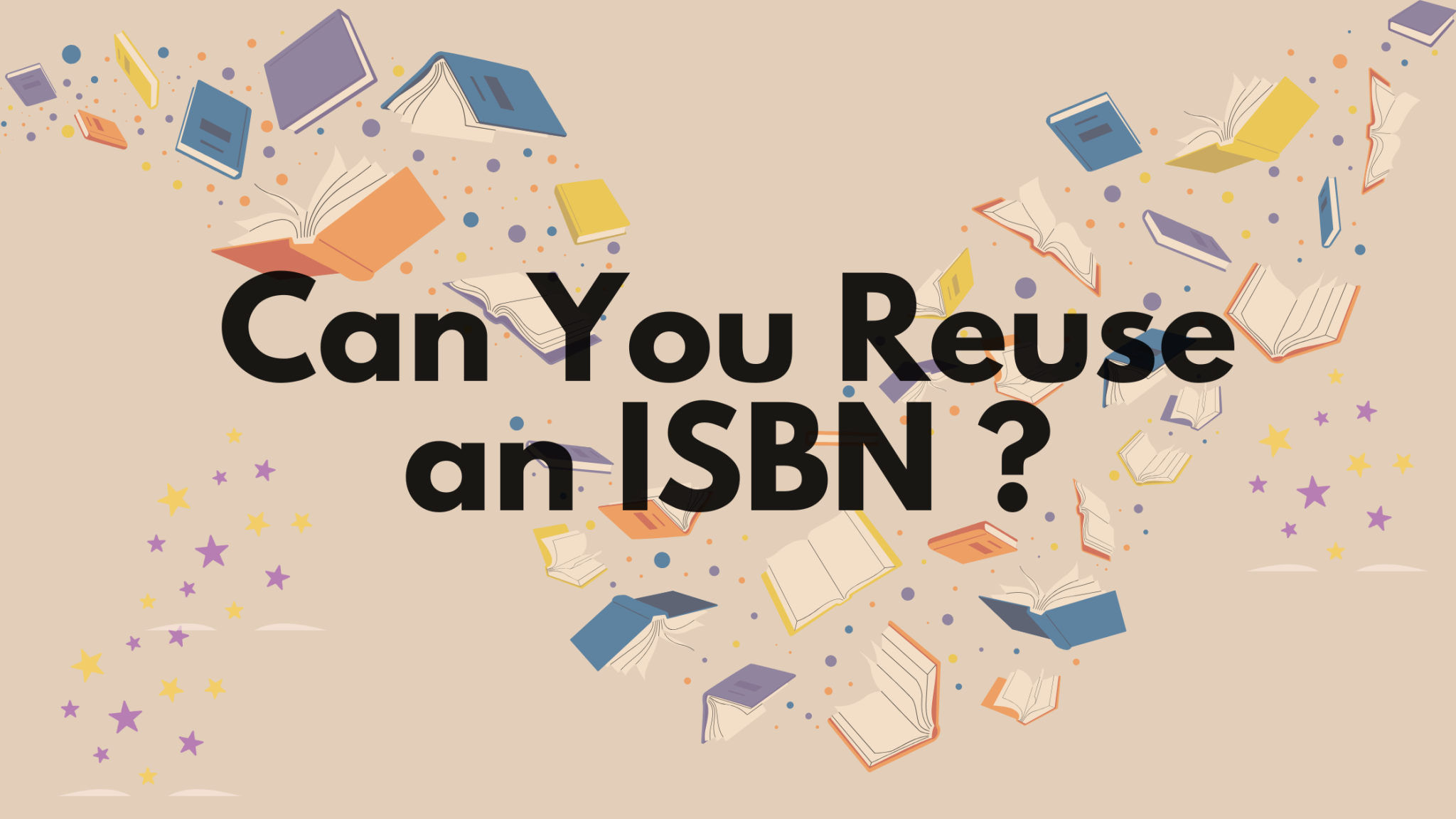As an author, you pour your heart and soul into your work. But once your book is out in the world, what happens if you want to make some changes? Maybe you’ve corrected a few typos, updated some information, or even added a new chapter. The question then arises: can you reuse the same ISBN for this new edition?
The short answer is a definitive no. An ISBN, or International Standard Book Number, is a unique identifier for a specific edition of a book. Reusing an ISBN is not only against publishing standards but can also lead to significant problems for you and your readers.
Why You Can’t Use an ISBN More Than Once

An ISBN is more than just a barcode; it’s a unique product identifier. Think of it like a Social Security number for your book. Each 13-digit number is assigned to a specific title, format, and edition. Here’s a breakdown of the key reasons why you can’t reuse an ISBN:
- It Identifies a Specific Product: An ISBN is associated with a particular edition of a book. This includes the title, author, publisher, and specific format (e.g., hardcover, paperback, e-book). If you change any of these details, you’re essentially creating a new product. Reusing an old ISBN would be like using the VIN of a previous car model for a new one.
- It Prevents Confusion for Retailers and Readers: The publishing industry relies on ISBNs to track and manage books. When a bookseller, library, or online retailer scans an ISBN, they expect it to match a specific title and edition. If you use the same ISBN for a new version, a customer who orders the “updated” book might receive the old one, leading to frustration and returns. It can also cause significant headaches for inventory management.
- It Tracks Sales Data and Reviews: ISBNs are used to track sales data and consolidate reviews. When you publish a new edition with a new ISBN, the sales data and reviews for that specific edition can be tracked separately. If you reuse the ISBN, the data for the latest edition would be lumped in with the old one, giving you a skewed and inaccurate picture of how your new version is performing.
- It’s an Industry Standard: The rules about ISBN usage are set by the International ISBN Agency and adhered to by publishers, distributors, and booksellers worldwide. Deviating from these standards can damage your credibility and make it challenging to secure your book in various distribution channels.
What Constitutes a New Edition?
It’s essential to understand what changes require a new ISBN. You need a new ISBN for your book if you:
- Change the title or subtitle.
- Add or remove significant content, such as a new chapter, foreword, or introduction.
- Change the format (e.g., from paperback to hardcover, or creating an e-book version).
- Make significant revisions to the content that substantially alter the original text.
- Change the publisher.
- Translate the book into a new language.
When Is a New ISBN NOT Required?
Navigating the world of ISBNs can sometimes feel complex, but it’s essential to understand the specific scenarios where a new ISBN isn’t necessary. These exceptions are typically related to what the publishing industry considers “minor” or “non-substantive” changes to a book. The key principle here is that the core identity of the book, the content, format, and purpose, remains the same.
You can confidently stick with your existing ISBN for the following changes:
- Correcting Typos or Grammatical Errors: This is perhaps the most common reason for a new print run. If you’ve discovered a few errant commas, a misspelled word on page 52, or a punctuation mistake, you do not need to acquire a new ISBN. These are considered corrections to the existing text, not a new edition. The book’s content, and the information a reader would expect to find, has not fundamentally changed.
- Making Minor Updates that Do Not Substantially alter the Content: This is where the lines can sometimes feel a bit blurry, but a good rule of thumb is to ask yourself, “Does this change the reader’s experience or the core information of the book?” If the answer is no, a new ISBN is likely not needed. For example, if you’re a non-fiction author and you update a statistical figure that has since changed, or you correct a small factual error that doesn’t impact the overall argument of the book, you can reuse the ISBN. Likewise, minor changes to the back cover blurb or a slightly different font size for a new print run do not necessitate a new ISBN. The change must be significant enough to warrant a new edition, like a completely rewritten chapter or the addition of a new one.
- Printing a New Batch of the Same Edition: This is an important distinction. An ISBN identifies a specific edition, not a specific print run. As long as the content and format are identical to the previous printing, you simply use the same ISBN. For example, if your book sells out and you decide to order another 1,000 copies from the printer, those new books will have the exact same ISBN as the first batch. This makes it easy for retailers and distributors to track the same product, regardless of when it was manufactured. The only reason a new ISBN would be needed is if you were making changes to the content or format as part of this new print run.
In essence, an ISBN is designed to be a permanent identifier. By understanding the distinction between minor edits and substantive changes, you can avoid unnecessary costs and complexities while ensuring your book is correctly cataloged and distributed in the publishing world.
Frequently Asked Questions
- Do I need a new ISBN for a new print run?
– No, as long as the content and format remain unchanged, you do not need a new ISBN. The new print run is considered the same edition.
- I have a paperback version. Do I need a new ISBN for the e-book and hardcover versions?
– Yes. Each format (paperback, hardcover, e-book, audiobook) is considered a separate product and requires its own unique ISBN.
- What if I just want to change the cover design? Do I need a new ISBN?
– A simple cover change without any other modifications to the content or format generally does not require a new ISBN. However, it’s a good practice to indicate the new cover in your book’s metadata to prevent confusion.
- My book has gone out of print. Can I reuse its ISBN for a new book I’m writing?
– Absolutely not. An ISBN is permanently assigned to a specific edition of a book. It is never reused, even if the book is no longer in print.
- Where can I get a new ISBN?
– You can purchase ISBNs from your country’s official ISBN agency. In the United States, that is the ISBN Service. In the UK, it is Nielsen UK ISBN Agency.
Conclusion
While it may seem like an extra step, getting a new ISBN for a new edition of your book is a crucial part of professional publishing. It ensures that your book is accurately represented in the market, helps you track its success, and prevents confusion for everyone involved, from booksellers to your loyal readers. In the eit’sit’s a small investment that protects the integrity of your work and your author brand.


